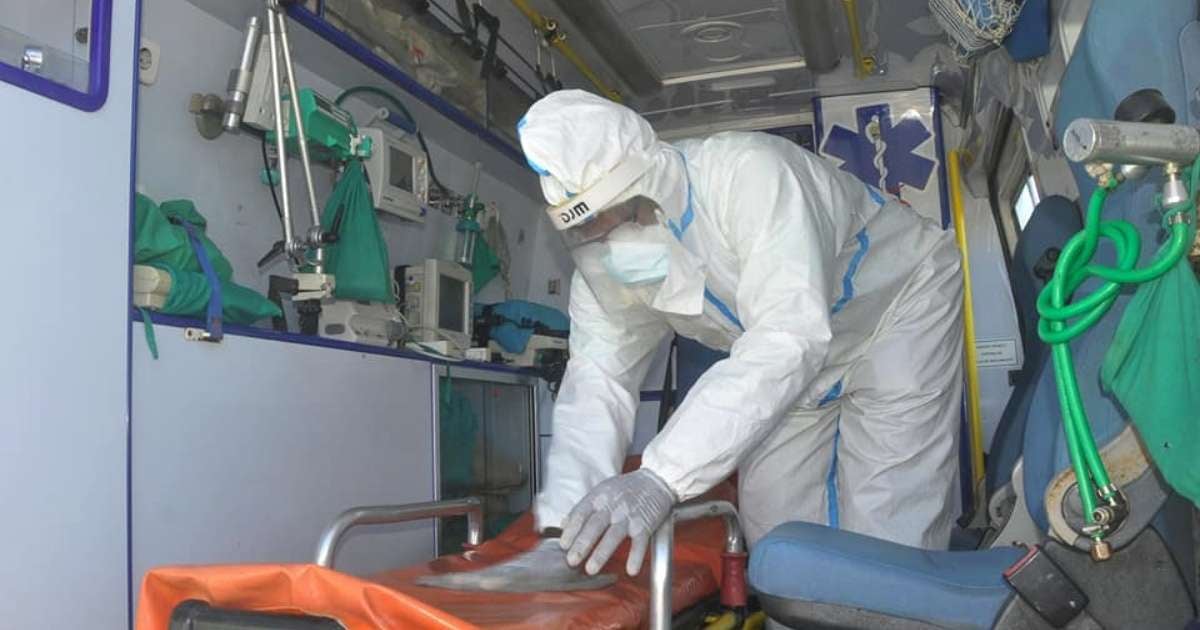
Related videos:
China is experiencing a significant increase in infections caused by human metapneumovirus (HMPV), a respiratory virus that has raised concerns among the public and the medical community.
Human metapneumovirus (HMPV) is a respiratory virus that causes symptoms similar to those of a common cold, such as cough, fever, nasal congestion, headache, and fatigue. In more severe cases, especially in young children, it can lead to complications like bronchiolitis or pneumonia.
It was first identified in 2001 in the Netherlands, although its circulation among humans is believed to be much older. This infectious agent tends to resurface during seasonal peaks of respiratory illnesses, and its presence has been documented in various parts of the world.
In recent weeks, there has been an increase in respiratory infections in China, with a notable rise in HMPV cases among individuals under 14 years old, especially in the northern provinces.
Chinese authorities have launched a pilot program to actively monitor cases of pneumonia of unknown origin, anticipating an increase in respiratory illnesses during the winter.
Adopted measures
Health authorities have intensified measures for surveillance and monitoring of emerging respiratory diseases. Although a national health emergency has not been declared, precautions are being taken to control the spread of the virus and prevent a situation similar to that experienced during the COVID-19 pandemic.
Tests and possible treatments
According to the Centers for Disease Control and Prevention (CDC) in the United States, HMPV infection can generally be confirmed through direct detection of the viral genome using a nucleic acid amplification test (NAAT) or through direct detection of viral antigens in respiratory secretions using immunofluorescence or enzyme-linked immunosorbent assay (ELISA). Routine testing is rare unless the symptoms are severe or there is an outbreak.
On its part, there is no specific antiviral treatment or vaccine for HMPV. According to the Cleveland Clinic, the focus of treatment is on alleviating symptoms:
Stay hydrated and get enough rest.
Use over-the-counter medications for pain, congestion, and fever.
Severe cases may require hospitalization for oxygen therapy or intravenous fluids.
Recommendations for the population
The population is advised to maintain good hygiene practices, such as frequent handwashing, wearing masks in crowded places, and avoiding close contact with individuals exhibiting symptoms of respiratory infections. Additionally, it is recommended to seek medical attention if experiencing severe or persistent symptoms.
Five years since the onset of COVID-19
Unlike SARS-CoV-2, which took the world by surprise in 2019, hMPV has been well-known to the medical community for over two decades. Its behavior is predictable and it is one of the viruses that contribute to seasonal peaks of respiratory illnesses, alongside others such as respiratory syncytial virus (RSV) and influenza.
In December 2019, the world began to hear about a new coronavirus identified in Wuhan, China. What initially appeared to be a localized outbreak quickly turned into a global pandemic that infected millions and resulted in the deaths of more than 6 million people, according to official figures.
The COVID-19 pandemic caused widespread shutdowns, changes in lifestyle habits, a surge in the rapid development of vaccines, and a global economic crisis. Additionally, it highlighted the weaknesses in health systems and the need for better preparedness for future health emergencies.
Five years later, the world continues to face challenges related to post-pandemic recovery and the emergence of new viruses, such as HMPV, which underscore the importance of epidemiological surveillance and international cooperation in public health.
Frequently Asked Questions about Human Metapneumovirus (HMPV) and the Health Emergency in China
What is human metapneumovirus (HMPV) and what are its symptoms?
Human metapneumovirus (HMPV) is a respiratory virus that causes symptoms similar to those of the common cold, such as cough, fever, nasal congestion, headache, and fatigue. In more severe cases, particularly in young children, it can lead to complications like bronchiolitis or pneumonia.
What measures are the Chinese authorities taking in response to the increase in HMPV cases?
Chinese authorities have strengthened surveillance and monitoring measures for emerging respiratory diseases. Although a national health emergency has not been declared, precautions are being taken to control the spread of the virus and to prevent a situation similar to that experienced during the COVID-19 pandemic.
Is there a treatment or vaccine for human metapneumovirus?
There is no specific antiviral treatment or vaccine for HMPV. The focus of treatment is on alleviating symptoms through hydration, rest, and the use of over-the-counter medications for pain, congestion, and fever. Severe cases may require hospitalization.
How can HMPV infection be prevented?
To prevent infection by HMPV, it is advised to maintain good hygiene practices, such as frequent hand washing, wearing masks in crowded places, and avoiding close contact with individuals showing symptoms of respiratory infections.
Why is epidemiological surveillance important in the face of new viruses like HMPV?
Epidemiological surveillance is crucial for quickly detecting outbreaks and implementing appropriate preventive measures. The emergence of new viruses like HMPV underscores the importance of international cooperation in public health and the necessity of being prepared for future health emergencies.
Filed under: